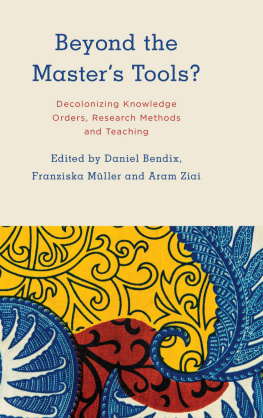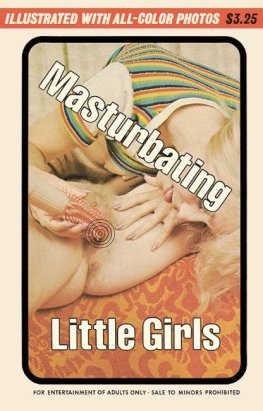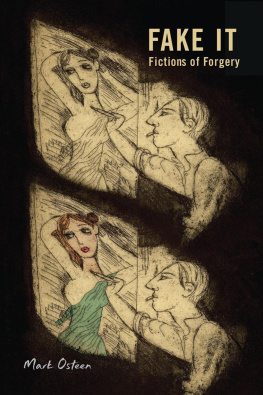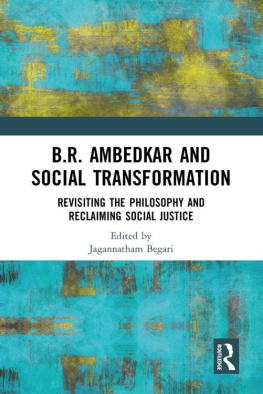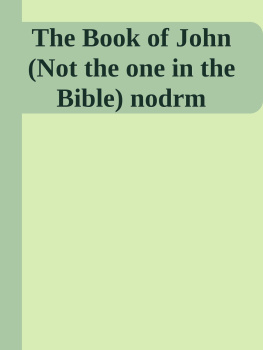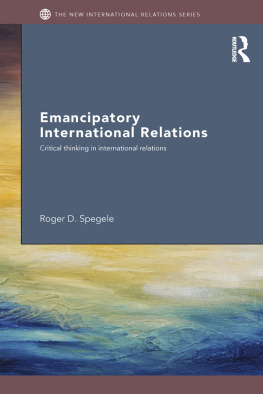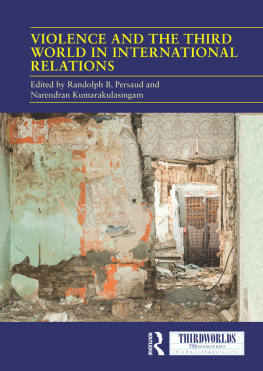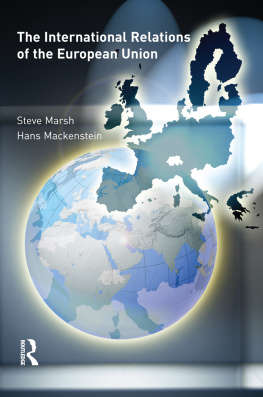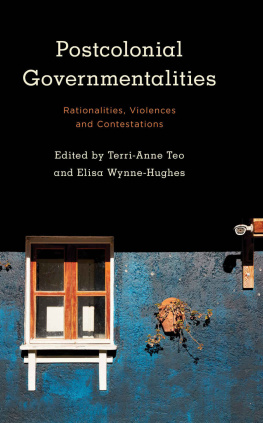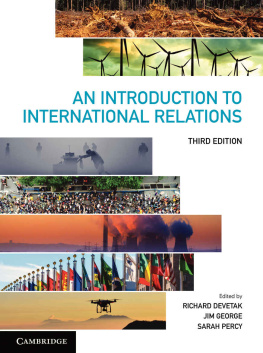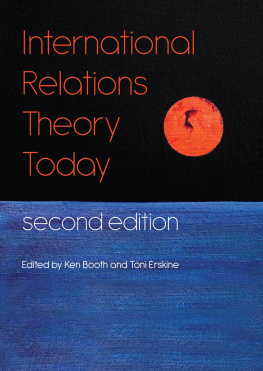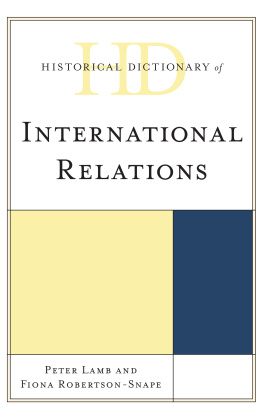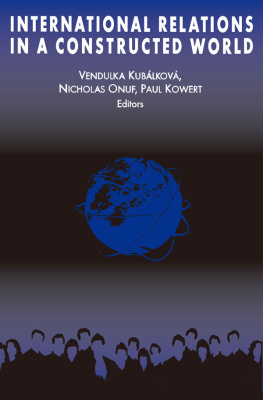Unknown - Beyond the Masters Tools? (Kilombo: International Relations and Colonial Questions)
Here you can read online Unknown - Beyond the Masters Tools? (Kilombo: International Relations and Colonial Questions) full text of the book (entire story) in english for free. Download pdf and epub, get meaning, cover and reviews about this ebook. year: 2020, publisher: Rowman & Littlefield Publishers, genre: Politics. Description of the work, (preface) as well as reviews are available. Best literature library LitArk.com created for fans of good reading and offers a wide selection of genres:
Romance novel
Science fiction
Adventure
Detective
Science
History
Home and family
Prose
Art
Politics
Computer
Non-fiction
Religion
Business
Children
Humor
Choose a favorite category and find really read worthwhile books. Enjoy immersion in the world of imagination, feel the emotions of the characters or learn something new for yourself, make an fascinating discovery.
Beyond the Masters Tools? (Kilombo: International Relations and Colonial Questions): summary, description and annotation
We offer to read an annotation, description, summary or preface (depends on what the author of the book "Beyond the Masters Tools? (Kilombo: International Relations and Colonial Questions)" wrote himself). If you haven't found the necessary information about the book — write in the comments, we will try to find it.
Unknown: author's other books
Who wrote Beyond the Masters Tools? (Kilombo: International Relations and Colonial Questions)? Find out the surname, the name of the author of the book and a list of all author's works by series.
Beyond the Masters Tools? (Kilombo: International Relations and Colonial Questions) — read online for free the complete book (whole text) full work
Below is the text of the book, divided by pages. System saving the place of the last page read, allows you to conveniently read the book "Beyond the Masters Tools? (Kilombo: International Relations and Colonial Questions)" online for free, without having to search again every time where you left off. Put a bookmark, and you can go to the page where you finished reading at any time.
Font size:
Interval:
Bookmark:
Kilombo: International Relations and Colonial Questions
Series Editors:
Mustapha K. Pasha, Aberystwyth University
Meera Sabaratnam, SOAS University of London
Robbie Shilliam, Queen Mary University of London
This is the first series to mark out a dedicated space for advanced critical enquiry into colonial questions across international relations (IR). The ethos of this book series is reflected by the bricolage constituency of Kilombos settlements of African slaves, rebels and indigenous peoples in South America who became self-determining political communities that retrieved and renovated the social practices of its diverse constituencies while being confronted by colonial forces. The series embraces a multitude of methods and approaches, theoretical and empirical scholarship, alongside historical and contemporary concerns. Publishing innovative and top-quality peer-reviewed scholarship, Kilombo enquires into the shifting principles of colonial rule that inform global governance and investigates the contestation of these principles by diverse peoples across the globe. It critically reinterprets popular concepts, narratives and approaches in the field of IR by reference to the colonial question and, in doing so, the book series opens up new vistas from which to address the key political questions of our time.
Titles in the Series
Meanings of Bandung: Postcolonial Orders and Decolonial Visions
Edited by Qunh N. Phm and Robbie Shilliam
Politics of the African Anticolonial Archive
Edited by Shiera S. el-Malik and Isaac A. Kamola
Asylum after Empire: Colonial Legacies in the Politics of Asylum Seeking
Lucy Mayblin
Decolonizing Intervention: International Statebuilding in Mozambique
Meera Sabaratnam
Global Development and Colonial Power: German Development Policy at Home and Abroad
Daniel Bendix
The Postcolonial African State in Transition: Stateness and Modes of Sovereignty
Amy Niang
South Africa, Race and the Making of International Relations
Vineet Thakur and Peter Vale
Postcolonial Governmentalities: Rationalities, Violences and Contestations
Edited by Terri-Anne Teo and Elisa Wynne-Hughes
Beyond the Masters Tools? Decolonizing Knowledge Orders, Research Methods and Teaching
Edited by Daniel Bendix, Franziska Mller and Aram Ziai
Decolonizing Knowledge Orders, Research Methods and Teaching
Edited by Daniel Bendix, Franziska Mller and Aram Ziai
ROWMAN & LITTLEFIELD
Lanham Boulder New York London
De Diferentes Lugares, poem by by Leo Zavaleta, used by permission.
Illustrations by Lena Ziyal and by Jana Doell used by permission.
Copyright Daniel Bendix, Franziska Mller and Aram Ziai, 2020
Copyright in individual chapters is held by the respective chapter authors.
All rights reserved . No part of this book may be reproduced in any form or by any electronic or mechanical means, including information storage and retrieval systems, without written permission from the publisher, except by a reviewer who may quote passages in a review.
British Library Cataloguing in Publication Data
A catalogue record for this book is available from the British Library
ISBN: HB 978-1-78661-359-2
PB 978-1-78661-358-5
Library of Congress Cataloging-in-Publication Data
ISBN 978-1-78661-359-2 (cloth : alk. paper)
ISBN 978-1-78661-358-5 (paperback : alk. paper)
ISBN 978-1-78661-360-8 (electronic)
 The paper used in this publication meets the minimum requirements of American National Standard for Information Sciences Permanence of Paper for Printed Library Materials, ANSI/NISO Z39.48-1992.
The paper used in this publication meets the minimum requirements of American National Standard for Information Sciences Permanence of Paper for Printed Library Materials, ANSI/NISO Z39.48-1992.
Aram Ziai, Daniel Bendix and Franziska Mller
Gurminder K. Bhambra
Rosalva Ada Hernndez Castillo
Gurminder K. Bhambra, Julia Surez-Krabbe, Robbie Shilliam, Manuela Boatc, Olivia U. Rutazibwa, Peo Hansen and Mariam Popal
Johanna Leinius
Melanie Brazzell
Miriam friz Trzeciak
Mariam Popal, Gurminder K. Bhambra, Manuela Boatc, Julia Surez-Krabbe, Olivia U. Rutazibwa, Robbie Shilliam and Maria Eriksson Baaz
Andrew Davies and Kathy Burrell
Encarnacin Gutirrez Rodrguez, Kien Nghi Ha, Jan Hutta, Emily Ngubia Kess, Mike Laufenberg and Lars Schmitt
Andrea Cornwall
Wendy Harcourt
Chandra-Milena Danielzik, Franziska Mller and Daniel Bendix
Aram Ziai
Robbie Shilliam, Gurminder K. Bhambra, Peo Hansen, Julia Surez-Krabbe, Olivia U. Rutazibwa and Mariam Popal
Decolonizing academia has become a rallying cry on many campuses during the past couple of years. While this book is inspired by the current debates, the foundation for this project was laid at the conference Beyond the Masters Tools: Post- and Decolonial Approaches to Research Methodology and Methods in the Social Sciences, which took place at the University of Kassel in January 2016. Since then, debates and activism have meandered and resulted in many seeds planted in different places. Likewise, when we now express gratitude to those who have supported this project at various stages, our thank you goes out in many directions.
First of all, we would like to highlight the strong commitment of all those who realized this conference Joshua Kwesi Aikins, Josephine Brmer, Franziska Dbgen, Petra Klein, Eric Otieno Sumba, Benjamin Petersen, Sophia Pianowski, Ronja Schrder, Miriam friz Trzeciak and Elisabeth Tuider. Furthermore, the lecture performance Dismantling the Masters Archive by Laura Digoh, Jeannette Ehrmann and Darja Klingenberg and the spoken word performances by Philipp Khabo Koepsell and Moona Moon had a resonance that has been inspirational for us up until today, all the more as it shows how art may fundamentally change the ivory tower and its power structures. We are grateful to all the participants of the conference for the wonderful debates that we have tried to reflect with this book.
We have received fruitful and enriching feedback concerning different aspects of the project first and foremost from Robbie Shilliam, whose continuous and ever timely support was highly constructive for setting the stage, and placing this book at just the right location the Kilombo Series. We would also like to thank Mustapha Kamal Pasha and Meera Sabaratnam, the co-editors of the Kilombo Series, on whose support we could also rely. Furthermore, Dhara Snowden and Rebecca Anastasi from Rowman & Littlefield were incredibly supportive during the publication process and we would like to thank them for their professional and patient handling of this manuscript. We would also like to express our gratitude to two anonymous reviewers for their constructive and highly valuable comments.
Kolya Abramsky brilliantly translated Ada Hernndez Castillos contribution from Spanish into English and showed outstanding context sensitivity for the different textual formats of this particular chapter (although his numerous comments fell prey to necessary cuts). Also, Eric Otieno Sumba, who translated the round-table discussion on race, class and gender in German universities, was highly committed to making these complex debates accessible for a larger audience. Furthermore, we are grateful to Nomaswazi Mthombeni Jasmine Omeke and Ellie Gunesch for their ambitious work in preparing and copy-editing the manuscript.
We would like to express our thanks and appreciation to the German Research Foundation (DFG) for its generous support as funder of the conference (grant ZI 75911). Finally, heartfelt thanks go out to all the colleagues who contributed to this volume during many inspiring and passionate discussions, and many meaningful contributions at conferences and workshops.
Font size:
Interval:
Bookmark:
Similar books «Beyond the Masters Tools? (Kilombo: International Relations and Colonial Questions)»
Look at similar books to Beyond the Masters Tools? (Kilombo: International Relations and Colonial Questions). We have selected literature similar in name and meaning in the hope of providing readers with more options to find new, interesting, not yet read works.
Discussion, reviews of the book Beyond the Masters Tools? (Kilombo: International Relations and Colonial Questions) and just readers' own opinions. Leave your comments, write what you think about the work, its meaning or the main characters. Specify what exactly you liked and what you didn't like, and why you think so.

